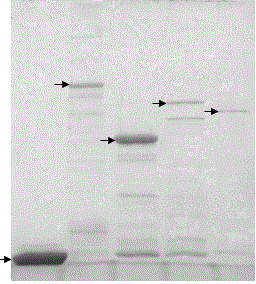Oops, I did not see this until just now.
I am not wrong. Neither of those links show that any Covid-19 antibody test is absolutely 100% specific for Covid-19. And given that coronaviruses have structural similarities, it may not be possible to develop a test that ONLY detects Covid-19 antibodies, and nothing else.
According to one Chinese study, "The specificity of the assays for Ab, IgM and IgG was determined as 99.1% (211/213), 98.6% (210/213) and 99.0% (195/197) by testing of samples collected from healthy individuals before the outbreak of SARS-CoV-2." When there is an error rate of 1-1.4% in an assay, and the measurement of antibody is 1.5% (as in the Stanford study), then I must question the data, since it is right there in the margin of error.
Also, I am posting an image of one of hundreds of immunoassays that I personally conducted, to show graphically the problem with antibody cross-reactivity:
The arrows point to the specific proteins that I was looking for. I knew they were the correct proteins because of their size (I did not show the size ladder on the image). This assay was run on a sample of proteins that had been separated by size. The immunoassays such as they are conducting to detect seropositivity do not separate out anything. Look at my image and imagine that each column was, instead, condensed into a single spot, the way a seropositivity assay would be run. You can see how condensing all of those lines into a spot would create a "positive" result, even if the specific protein wasn't there.
